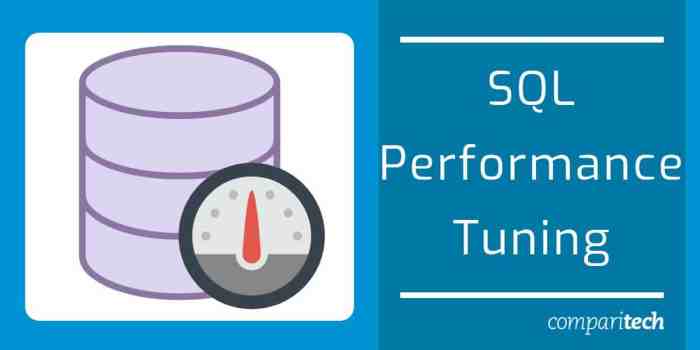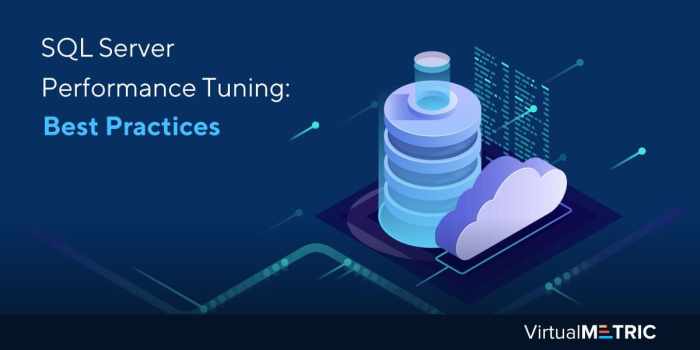Embark on a journey to conquer the intricacies of SQL performance tuning interview questions. Dive into the depths of performance metrics, query analysis, index optimization, table optimization, and hardware considerations. By mastering these concepts, you’ll transform yourself into a highly sought-after candidate with an unparalleled understanding of SQL performance tuning.
Delve into the techniques for analyzing slow queries, optimizing indexes effectively, and fine-tuning table structures. Discover the impact of hardware and infrastructure factors, as well as the nuances of database configuration settings. By unraveling these complexities, you’ll gain the confidence to troubleshoot and monitor SQL performance issues with finesse.
SQL Performance Tuning Interview Questions

SQL performance tuning is crucial for optimizing database performance and ensuring application responsiveness. This article explores key concepts and techniques involved in SQL performance tuning, covering performance metrics, query analysis, index optimization, table optimization, hardware and infrastructure considerations, database configuration, query optimization techniques, and troubleshooting and monitoring.
Performance Metrics, Sql performance tuning interview questions
Key performance metrics used in SQL performance tuning include:
Response time
Measures the time taken for a query to execute.
Throughput
Measures the number of queries processed per unit time.
Resource utilization
Measures the usage of CPU, memory, and other system resources by SQL operations.Understanding these metrics helps identify performance bottlenecks and prioritize optimization efforts.
Query Analysis
Techniques for analyzing slow queries include:
Using EXPLAIN
Provides information about the query execution plan, highlighting performance bottlenecks.
Profiling tools
Analyze query execution time, resource consumption, and I/O operations to identify performance issues.Identifying performance bottlenecks helps optimize queries by rewriting them, using indexes, or adjusting query parameters.
Index Optimization
Benefits of using indexes:Faster query execution by avoiding full table scans.
Limitations
Indexes consume storage space and can slow down data modification operations.
Effective index design and implementation involves:
- Choosing appropriate columns for indexing based on query patterns.
- Using multiple indexes for complex queries.
- Maintaining and tuning indexes regularly to ensure optimal performance.
Table Optimization
Techniques for optimizing table structures and data distribution:
Table partitioning
Dividing a large table into smaller, manageable partitions for faster data retrieval.
Clustering
Organizing table data based on frequently used columns for improved query performance.
Denormalization
Duplicating data in multiple tables to reduce the number of joins and improve query speed.Understanding the impact of these techniques helps optimize table structures for specific query patterns.
Answers to Common Questions
What is the most crucial performance metric in SQL tuning?
Response time, as it directly impacts user experience and application responsiveness.
How can I identify performance bottlenecks in a query?
Use EXPLAIN and profiling tools to analyze query execution plans and pinpoint areas of inefficiency.
What are the key considerations when designing indexes?
Cardinality, selectivity, and data distribution should be carefully evaluated to optimize index effectiveness.
How can table partitioning improve performance?
By dividing large tables into smaller, manageable chunks, partitioning reduces the amount of data scanned during queries.
What are the common troubleshooting techniques for SQL performance issues?
Checking query logs, analyzing execution plans, and monitoring system resources can help identify and resolve performance problems.

